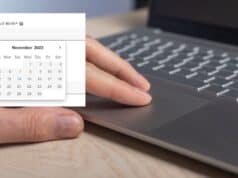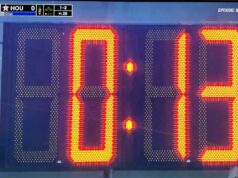Come back Thursday, July 21 for my new Podcast with former U.S. Treasury Secretary Paul O'Neill, where we talk about his work to improve patient safety in healthcare (see an earlier blog post here as a preview). I wish I had asked him about this new story, but I heard about it after our call.
The headline pretty much says it all:
“US Mint: Wasting Money By Making Money”
It's not just the “waste of overproduction,” making coins that people don't want in their pockets, but the government is now planning to build a $650,000 warehouse in Dallas. This would be good for our local Texas economy, but bad for the country.
From the article:
The U.S. Mint in Philadelphia is a big, noisy, busy operation, capable of minting nearly 2 million presidential dollar coins daily. But most of those coins go into storage, never seeing the light of day. Costing 32 cents apiece to produce, these manganese brass dollars have proven unpopular with a public that prefers paper.
ABC News went to one such storage facility, the Federal Reserve in Baltimore, where the coins are in plastics bags and cardboard boxes, stacked one on top of another, creating several aisles of presidential coinage worth millions of dollars.
And if the overproduction wasn't bad enough:
In their most recent annual report to Congress, the Federal Reserve says the coins are piling up so quickly they will need to spend $650,000 to build a new vault in Dallas to hold them. Shipping the coins to the new secure facility will cost an additional $3 million.
The waste of overproduction, the waste of transportation, and the waste of inventory.
Thank you, Congress!
Passed by Congress in 2005, the Presidential $1 Coin Act ordered the mint to make millions of coins to honor every dead president, but not even Sen. Jack Reed, D-R.I., one of the co-sponsors of the original bill, uses the legal tender.
Again, this appears to be the fault of Congress, not the U.S. Mint. Congress ordering these coins is like a GM dealer ordering cars that customers don't want (except in the auto industry, it's more often GM or Chrysler that forces car inventory on dealers).
A reaction yesterday from Twitter:
From: @davidwherry David Wherry@markgraban Crazy. I took Lean training w/people from the mint at OSU. Gov't legislation keeps them from implementing.
For those who haven't noticed, the United States is in a really bad situation, financially. Is ending this crazy program to produce unwanted coins part of the debt ceiling debate?
Meanwhile, the coins keep coming off the production lines, already more than a billion made and counting.
A cynic might ask if “Government Motors” has been teaching the U.S. Mint how to “push” production instead of allowing customers to “pull” coins when they are really needed or wanted…
A realist would ask if we should be more concerned about the BILLIONS of wasted healthcare spending that occurs annually. Mr. O'Neill estimates that we waste ONE TRILLION each year, as the result of poor quality and systemic inefficiency in healthcare. All things considered, the fight to improve healthcare is far more important than the fight to reduce the inventory of coins… and which waste gets more attention in the news? We can SEE the inventory of coins. It's really hard to see the human cost, as well as the financial cost, of poor healthcare quality, isn't it?
Please scroll down (or click) to post a comment. Connect with me on LinkedIn.
Let’s build a culture of continuous improvement and psychological safety—together. If you're a leader aiming for lasting change (not just more projects), I help organizations:
- Engage people at all levels in sustainable improvement
- Shift from fear of mistakes to learning from them
- Apply Lean thinking in practical, people-centered ways
Interested in coaching or a keynote talk? Let’s talk.
Join me for a Lean Healthcare Accelerator Trip to Japan! Learn More










Mark, two things:
1. I would disagree with the statement “a public that prefers paper”.
5 whys time: Why does the public prefer paper? Because it is the status quo? Why is it the status quo? Congress has punted every time this issue comes up. If the Congress showed some leadership, it would just stop making paper dollars because:
2. Replacing paper bills with coins can actually save money:
[$5.5 billion dollars over 30 years ($180 million/yr)]
http://news.consumerreports.org/money/2011/03/government-could-save-big-if-it-replaced-dollar-bills-with-coins.html
This is why I blame Congress for the waste, not the US Mint.
Congress mandated the minting of the dollar coins without taking action to phase out the paper money.
Maybe it would be better problem solving to phase out the bill instead of building a warehouse to hold the coins?
I prefer paper because it’s lighter and easier to carry, personally. But if Congress mandated the dollar coin, I’d survive. Being in Canada and Europe with relatively high value coins is OK when I’ve traveled.
Here is another article with “the other side” of the coin story:
http://dailycaller.com/2011/07/19/the-other-side-of-the-dollar-coin/
I was in the military in Germany 1978-81 when the government dumped Susan B. Anthony dollar coins on us. Folks in the USA did not like or want them, so military overseas were stuck with them. Why do people like paper over coins- $20 in one dollar bills weighs nothing, $20 in coin is too heavy to carry in your pocket it tends to pull your pants down, how about $40 or $60. Try running with that weight flopping around in your pocket chaffing your leg. This was an easy lesson to learn, why do we keep making the same mistakes over and over? We are governed by corrupt fools who are elected by ignorant idiots waiting with their hands out for the latest government give away. How hard could it be to stop this minting? A few minutes to stop hundreds of millions in waste not important enough to bother with, shame on us. How can we not be doomed with this attitude?
The government could end the problem simply by discontinuing the production of $1 bills. But that would require some political guts, which is sorely lacking these days. Another failed try at social engineering by our leaders in Congress.
Looking at historical inflation, a dollar is now worth less than a dime used to be. Vending machines that accept dollar bills will take dollar coins. The only negative I can think of, other than weight in the pocket is that banks don’t want coins (small potatoes) anymore, and will refuse to take sizable quantities, or charge an exorbitant fee like Coinstar.
Our church doesn’t bother to deposit coins, putting them into the children’s account, where they are surrendered to Coinstar at a loss of 9 cents to the dollar. Wonder if the folks who drop a dollar into the collection basket would go to a five, or just plop in a coin.
Why don’t you deposit the coins at the bank? Do they make you put the coins in rolls? They certainly don’t charge a 9% fee like the supermarket coin machines.
Because we immediately make the cash deposit on Sunday through the after-hours depository so money isn’t laying around, and they don’t take coins in the deposit bag.
Ah, I see. Not very customer-focused of the bank, is it?
It is a tragedy with what is going on in the country. We are struggling and cutting. The small business owner will be the one paying for these coins on the shelves. While the American people may not like the coins in their pockets, I’m sure they wouldn’t mind the paper that they could exchange it for. I had never thought of the waste that was produced in how we produce our money. It is kind of sad that we are not trying to prevent as much of this as possible. Also, I find it quite unusual that we are opening up another mint. This seems absolutely unnecessary.
[…] the myth survives, thanks to the belief that, bad as some governments were (and often still are) at supplying their citizens with decent coins, competing private firms would have been […]
Comments are closed.